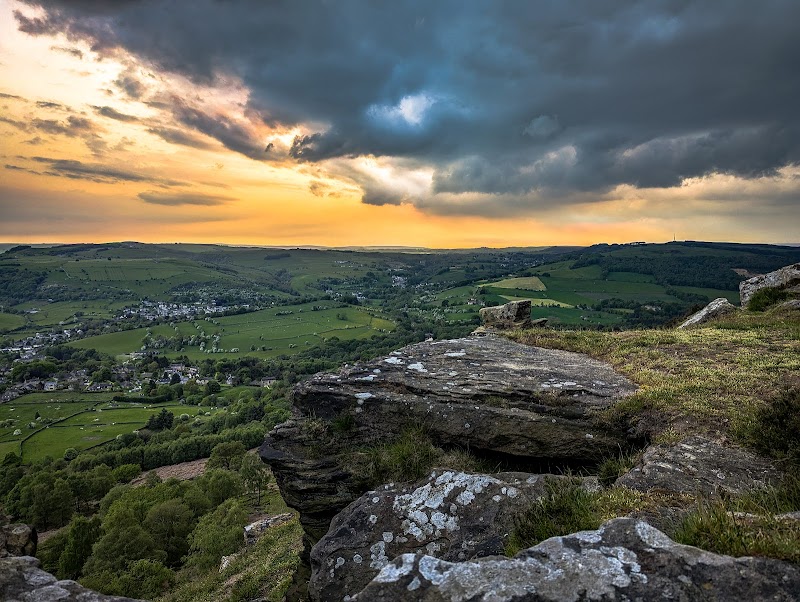
Cycling the Lincolnshire Coastal Trail Challenge: An Adventure at Boston’s Edge
The Lincolnshire Coastal Trail Cycle Challenge invites cyclists to experience an accessible yet invigorating ride along Boston’s coastline. With varied terrain, gentle elevation, and coastal vistas, it’s a practical adventure for a wide range of riders ready to engage directly with the natural elements.
Stay Hydrated With Refill Points
Carry a refillable water bottle; while village stops offer some options, they can be spaced out along the trail.
Choose All-Terrain Tires
The trail shifts from paved roads to packed gravel; medium-tread tires provide necessary grip without sacrificing speed.
Plan for Wind Conditions
Lincolnshire’s coast is exposed; start your ride in the early morning when winds are calmer to conserve energy.
Pack Light Layers
Weather can shift quickly; bring breathable layers to adjust to cool sea breezes or warmer inland sun.
Cycling the Lincolnshire Coastal Trail Challenge: An Adventure at Boston’s Edge
The Lincolnshire Coastal Trail Cycle Challenge offers a dynamic route along one of England’s quieter coastlines, winding through the edges of Boston and beyond. Spanning approximately 50 kilometers, this challenge stands out with its gentle elevation gains—mostly flat but peppered with gradual inclines—making it accessible for both passionate cyclists and adventurous newcomers. The terrain varies: expect stretches of paved coastal roads, sturdy country lanes, and a few sections of packed gravel where tires meet grit and the trail pushes you to stay sharp.
Starting in Boston, the challenge invites riders to trace Lincolnshire’s coastline where the sea seems alive, almost daring riders to beat the breeze and keep pace with the waves. The flat fenland countryside appears tranquil, but the wind remains a constant player, urging you onward or holding you in place, depending on its mood.
The route skirts salt marshes where seabirds patrol and muddy tidal creeks whisper stories of old. Passing through small villages, it offers practical stops for water, snacks, and rest—a necessary pause before the next stretch. Forested segments filter light and sound, letting you breathe in the scent of damp earth and pine, moments before the trail opens back up to sweeping views over the Wash’s vast tidal flats.
To prepare, hydration is crucial; a water bottle with reliable access for refills is a must given the sporadic facilities along the way. Footwear and bike tires with moderate tread work best to adapt to diverse surfaces without sacrificing speed or control. The best time to tackle this challenge is late spring through early autumn, when daylight lasts and weather holds.
Timing your ride early in the day helps avoid stronger afternoon winds and midday fatigue. The coastal trail respects those who engage it with thoughtful planning and a steady pace. Challenging in its length and environmental elements, it rewards careful preparation with a solid sense of accomplishment and the steady pulse of the sea as your companion.
Nearby Trips
All Adventures
Boat Charters
Water Activities
Adventures near Boston, Lincolnshire
Discover the unique and memorable adventures that make Boston, Lincolnshire special.
Frequently Asked Questions
Are there places to rest and refill water along the route?
Yes, small villages along the trail, such as Freiston and Wyberton, provide cafés and shops where you can rest and refill water, but some stretches may be long, so carry enough water to stay hydrated between stops.
What kind of wildlife might I see on the Lincolnshire Coastal Trail?
The coastal marshes are home to a variety of seabirds including curlews, lapwings, and redshanks. In spring and fall, migratory birds pass through, while you might spot rabbits and field voles along quieter inland stretches.
Is the route suitable for beginner cyclists?
The trail’s mostly flat terrain makes it accessible to beginners with basic fitness and bike handling skills, but the coastal wind and some unpaved sections require attention and moderate resilience.
What is the historical significance of the area around Boston in Lincolnshire?
Boston has a rich history as a medieval port town involved in trade and pilgrimage routes, with landmarks like St Botolph’s Church (the 'Boston Stump'); the surrounding landscape reflects centuries of fen drainage and coastal management.
Are there any environmental concerns to be aware of on this trail?
The salt marshes and fenlands are sensitive habitats, so it’s important to keep to the designated paths to protect wildlife breeding grounds and prevent erosion.
When is the best time of day to ride for photography opportunities?
Early morning light casts soft hues over tidal flats and marshes, while late afternoon offers dramatic shadows and rich colors before sunset, perfect for capturing the expansive coastal scenery.
Recommended Gear
Medium-Tread Bike Tires
Offers firm grip across paved and gravel sections, enhancing control without compromising speed.
Hydration Pack or Water Bottle
Critical for maintaining hydration on longer stretches between villages and shops.
Windbreaker Jacket
Protects against harsh coastal winds and sudden temperature drops.
Padded Cycling Gloves
Offers comfort for longer rides and better grip, reducing hand fatigue.
Local Insights
Hidden Gems
- "Fishtoft churchyard for ancient gravestones and peaceful reflection"
- "The tidal creek viewpoints near Butterwick"
- "Quiet lanes around Wrangle for views of wild fen landscapes"
- "Small salt marsh hideouts ideal for birdwatching"
Wildlife
- "Curlew"
- "Lapwing"
- "Redshank"
- "Barn owl"
History
"Boston’s significance as a medieval port during the Hanseatic League era shaped much of the coastal trade and development. The fenlands surrounding the city have been reclaimed through centuries of drainage projects, illustrating centuries-old human and environmental interplay."
